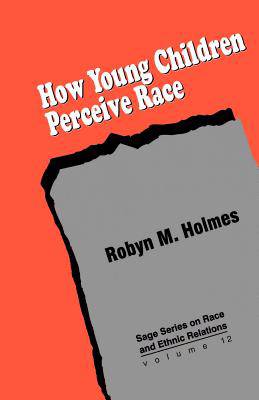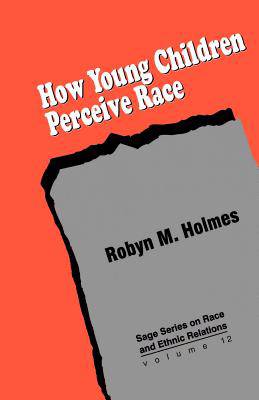
Bedankt voor het vertrouwen het afgelopen jaar! Om jou te bedanken bieden we GRATIS verzending (in België) aan op alles gedurende de hele maand januari.
- Afhalen na 1 uur in een winkel met voorraad
- In januari gratis thuislevering in België
- Ruim aanbod met 7 miljoen producten
Bedankt voor het vertrouwen het afgelopen jaar! Om jou te bedanken bieden we GRATIS verzending (in België) aan op alles gedurende de hele maand januari.
- Afhalen na 1 uur in een winkel met voorraad
- In januari gratis thuislevering in België
- Ruim aanbod met 7 miljoen producten
Zoeken
Omschrijving
How Young Children Perceive Race examines children′s conceptions of race and ethnicity and explores how these factors influence their social relationships. In contrast to most previous studies of children′s beliefs and attitudes (done in experimental, contrived, and/or structured settings), this book studies children in their natural environment: the classroom. The author uses the children′s own conceptualizations, relying largely on their words and drawings to elicit beliefs and understandings about race and ethnicity. From these data, Robyn M. Holmes divines how kindergartners and other young children understand group boundaries and how they establish an ethnic component for their senses of self and for their concepts of friendship, romance, and procreation. This exciting study will interest scholars, teachers, and students of race/ethnicity, psychology, early childhood education, child development, family studies, sociology, and education. "Focused on the racial beliefs and attitudes of young children, Robyn M. Holmes′s research provides data in several areas: how children categorize people on the basis of race and ethnicity; how children view interracial romantic relationships and why race is an issue in such relationships; why race is not a factor in selecting a same-sex friend; how interracial relationships develop; and how children′s notions of race affect their knowledge of procreation. Holmes has surely met the goal of this book, to present children′s notions of racial and ethnic matters in their own terms. Recommended for social science collections." --Multicultural Review "Robyn M. Holmes writes clearly and describes her research in a manner accessible to the average undergraduate. . . . A good example of anthropological method." --Choice "This is a wonderful ethnographic study of the race relations attitudes and beliefs of young children. . . . In presenting her findings, Robyn M. Holmes reminds us once again that race is a social construction that is learned during young, tender ages and thus, is not just ′an adult′ problem or issue." --from the Foreword by John H. Stanfield II
Specificaties
Betrokkenen
- Auteur(s):
- Uitgeverij:
Inhoud
- Aantal bladzijden:
- 146
- Taal:
- Engels
- Reeks:
- Reeksnummer:
- nr. 12
Eigenschappen
- Productcode (EAN):
- 9780803971097
- Verschijningsdatum:
- 1/01/1995
- Uitvoering:
- Paperback
- Formaat:
- Trade paperback (VS)
- Afmetingen:
- 141 mm x 217 mm
- Gewicht:
- 208 g

Alleen bij Standaard Boekhandel
+ 558 punten op je klantenkaart van Standaard Boekhandel
Beoordelingen
We publiceren alleen reviews die voldoen aan de voorwaarden voor reviews. Bekijk onze voorwaarden voor reviews.









